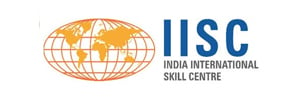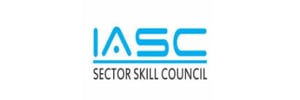"SMEClabs" is a registered trademark of SMEC Automation Pvt. Ltd. © 2024 SMEClabs All rights reserved

78%
Alumni Career Transitions
5200+
Hiring Partners
60%
Avg Salary Hike
22
Years of R & D in Syllabus
You can see certified QA QC Engineers in different sectors such as Chemical, Instrumentation, Civil, etc. The requirement of QA QC Engineers is increasing all around the world especilly in a developing country like india. Most of the industries are looking for certified QA QC Engineers, so if you become a certified QA QC engineer then you can secure your future. SMEClabs can help you to become future ready.
QA QC Engineers should have different skills and you can achieve all these skills with the help of SMEClabs. After complerting QA QC course from SMEClabs you would get a lot of knowledge regarding the NDT, welding inspection, and lot more. So SMEClabs would help you to achieve your dream. You would also acquire lot of industrail skills after completing this course. Industrail exposure is really important to solve most of the complex industrail tasks
** The above is the lite syllabus and doesn’t cover the full syllabus. To get full syllabus Book a Free Demo Now

International & National Level Certification.
Subscription for remote lab connectivity. 24x7
Set and maintain flexible deadlines.
Certifications & Accreditations






QA QC plays an important role in many sectors from civil to electrical, and also in many other sectors. Quality assurance and quality control are required to achieve the proper quality of the material. A QC must be able to handle any problem related to the operations. QC must be able to maintain a process in control. Must be able to determine if the process is out of control and should take proper actions to keep the process in control.
QA is the quality that is related to the process quality while the QC is dependent on the product.
Procedures or good practices for taking, registering, mapping, and preparing samples, security procedures, and others that ensure pre-established standards of precision and accuracy.
Procedures such as choice of laboratory, analysis of the material, determining the quality of the final product, standards, granulometric control, etc., make it possible to control that the standards in the procedures are maintained over time.
QA/QC is inevitable in most industries and their job is to make sure that the final product has good quality. So most companies are looking for skillfully experienced professionals. In order to get a job in this sector then you must be a certified professional. SMEClabs would help you to be an internationally certified professional. You would be trained by our experienced professionals so you can also acquire a lot of skills from them.
Mode of Training
1 months +
Learning Content + Practicals
You can become a certified QA/QC engineer after completing the certified QA/QC engineering course from SMEClabs.
SMEC, one of India’s first worldwide EPC contractor company globally recognized for its distinctive services specifically in Marine & Industrial Automation, Instrumentation, Electrical, Pneumatics, Hydraulics and Mechanical sectors which started its journey in 2001. It has a R&D and training division SMEClabs which caters job-oriented training in various domains which helps an aspiring engineer /fresher or professionals to get a jump start to their career.
The significant contrast between the QA QC is that the QA manages the interaction that makes the item. The QC manages the finished result. So if there should be an occurrence of the quality confirmation, it would check the assembling system and the unrefined components, while in the event of the quality control it would actually look at the fabricated item.
SMEClabs
INDIA
2nd Floor Kaloor Bus stand Complex Cochin.
Ph: +91 9958873874
[email protected]
"SMEClabs" is a registered trademark of SMEC Automation Pvt. Ltd. © 2024 SMEClabs All rights reserved